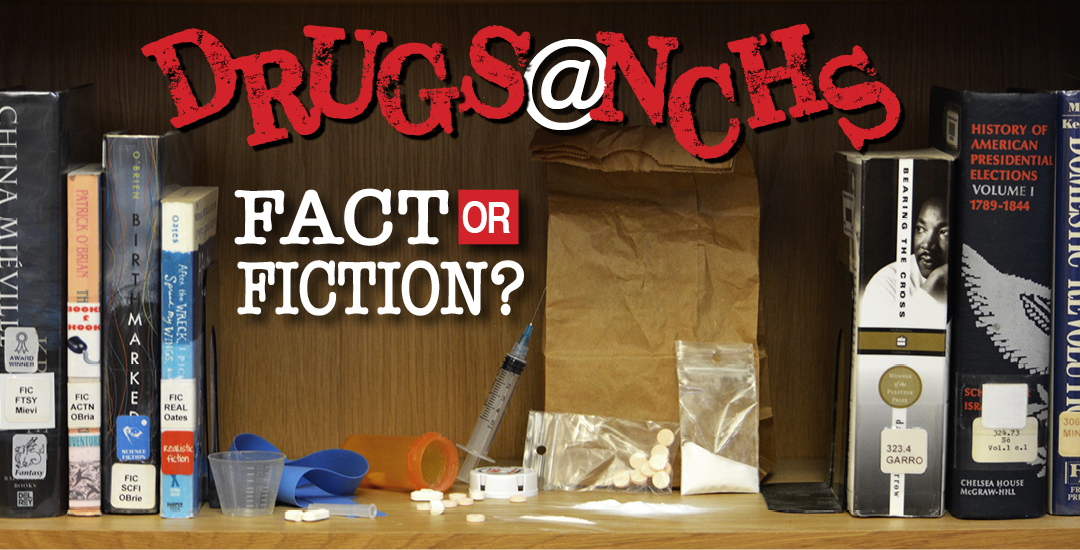Joelle Anselmo, Executive Editor
@janselmoCourant
In July, Superintendent of Schools Dr. Bryan Luizzi presented to the Board of Education a proposal that would allow New Canaan Police Department canine units to do random drug searches in the high school. The proposal has the backing of Chief of Police Leon Krolikowski, but the Board of Education wants more discussion about the K-9 policy.

Since then, the discussion of school start times has pushed the K-9 policy out of the headlines, but the questions it raises about drug use at NCHS are still relevant.
Nationwide, opioid use has increased significantly, with more than 115 people overdosing a day in the U.S., according to the National Institute on Drug Abuse. Connecticut is no exception, as it is among the top ten states with the highest opioid-related deaths, according to the same website. In 2016, the number of heroin-related deaths increased to 450, compared to 98 reported deaths in 2012.
New Canaan has not been spared the effects of opioid use. Between 2013 and 2016, three men in their early to mid-twenties who had graduated from NCHS died from heroin overdoses, which led to the creation of an annual Overdose Awareness Vigil, hosted each August by the New Canaan Parent Support Group and the New Canaan Community.
The K-9 proposal, the nationwide opioid crisis, and the heroin-related deaths of NCHS graduates raise some questions: Are drugs a significant problem at NCHS? And will random drug searches make NCHS a safer place? The answers depend on whom you ask.
According to Chief Krolikowski, most drug use among high school age students involves marijuana and alcohol. Regarding NCHS, he added, “I think the vast majority is marijuana and alcohol. As far as we know, there’s a lot of prescription drug misuse and that goes across the board from Xanax to opioids to all kinds of other drugs. The smaller percentages are heroin, cocaine, drugs like that. We’ve seen PCP, heroin, cocaine.”
But Principal William Egan said, “As far as hard drugs like Xanax, cocaine, heroin and other opioids, I haven’t seen, in any of my four years here, a single one in the school.”
While Mr. Egan has not encountered such drug use here, he added that he had multiple experiences as an administrator in other districts where students were expelled for drug-related issues. NCHS is different. “Within the last four years, we have a relatively low suspension rate and no expulsions,” he said. “The students are making responsible choices while they are in the building, at least for the most part.”
Community Concerns
Chief Krolikowski is concerned about substance abuse within all New Canaan Public Schools. “We’ve had kids bring alcohol to school and try to sell it, we’ve had vaping in the elementary school. We know drugs are all there, it’s just a matter of if we want to come to grips with it,” he said.
Yet regarding drugs, like cocaine, heroin, and other opioids, Youth Services Officer Sergeant Joseph Farenga said “Since I’ve been in this office for over a year now, we haven’t had too much exposure regarding hard drugs in the high school, not to say they aren’t there.”

School Resource Officer Geoffrey Lambert has seen a reduction in use of all drugs in recent years. “The drug usage has either dropped or kids are getting better at hiding it. I haven’t seen it like I have in the past, yet to say that it’s not going on would be naive,” he said.
While the policy regarding drug searches in school is still being discussed, Chief Krolikowski said that preventing substance abuse starts with parents, “There are certain parents in town who host parties, knowing alcohol is being served and drugs are being used. That leaves a whole host of problems, like sexual assault, regular assault, theft. Some parents believe that it’s a part of growing up, but research shows that the longer you prevent the use of alcohol and drugs, the less probability kids are going to have a lifelong problem,” he said.
In addition, he said that the schools have a responsibility to prevent substance abuse. “They need to make sure they are educating kids and when they come across kids that have behavioral health issues or substance abuse issues they need to get them the help they need,” he said. “Overall, the Board of Education and the school system is not doing enough.”
So What Is the School System Doing?
According to curriculum documents and school officials, NCHS approaches drug prevention with curriculum, communication and mental health support.
Direct instruction in drug-related issues is built into the health curriculum in 9th and 10th grade; Health is a required course for students in all four years of high school. In junior and senior years, students have the freedom to choose independent research projects, which may include “analyzing epidemiological trends related to health issues,” according to the Program of Studies. Assistant Principal Larry Sullivan said, “On top of ongoing education in health classes, we have a component in sciences classes as well.”
In addition to prevention education, communication from school administration and the Parent Faculty Association stress the importance of healthy choices. “That’s why we send letters home on a regular basis and why we try to have meetings on a regular basis,” Mr. Egan said.
“Also, the PFA has worked to bring in speakers to talk about issues of abuse and consequences that may happen,” Mr. Sullivan added. In 2015, nationally-known speaker and former professional basketball player Chris Herren addressed the student body and the community on the dangers of heroin. According to ncparentsupportgroup.org, Mr. Herren is scheduled to return to New Canaan to address the community on April 24, 2019.
 Thirdly, the school’s mental health team, consisting of the guidance counselors, Teens Talk Counselor, social workers and school Psychologist, actively educate students on drug usage. Teens Talk Counselor Emma Freatman has an office where students can go if they need someone to talk to. She focuses on preventing drug abuse as well as providing referrals to community resources that can help students and families deal with a drug problem. “The people who are working in the counseling suite are so skilled. The people who are on the mental health team are incredible,” she said.
Thirdly, the school’s mental health team, consisting of the guidance counselors, Teens Talk Counselor, social workers and school Psychologist, actively educate students on drug usage. Teens Talk Counselor Emma Freatman has an office where students can go if they need someone to talk to. She focuses on preventing drug abuse as well as providing referrals to community resources that can help students and families deal with a drug problem. “The people who are working in the counseling suite are so skilled. The people who are on the mental health team are incredible,” she said.
Even with these measures in place, NCHS is not immune to substance abuse. “Is there any perfect community? No,” Mr. Egan said. “There are going to be some examples of poor choices that adolescents make, and people beyond adolescents, too.”
When students make those choices, the school takes direct action. “If we are aware of something or we hear something we have a right to search,” he said. “We’ve done that here. And then we will work with the student. We will ask them to empty their pockets, open their backpacks, search their lockers. Those are rights we have because we are in a public school environment. We do intervene if we are aware of something. We don’t take this responsibility lightly.”
The school takes a two-part approach to intervention. “If a child makes a mistake, part of our programming is education,” he said. “We try to work with the child and have them talk to a counselor and consider possible things that they could do in the future to not make those mistakes. Part of what we do is discipline. It’s a mandatory five-day suspension for alcohol or drug use (even vaping).”
Would Random Drug Searches Improve School Safety?
The K-9 proposal is designed to make NCHS drug-free and safe for students, and to help students who may be struggling with drug abuse. “Why can’t you go to the high school and not worry about being exposed to drugs?” Chief Krolikowski said, “Even if we interrupt the cycle of substance use for one kid in the high school, that’s success in my opinion.”
If the policy doesn’t become a reality, the Chief wants to know what other solution the town can provide instead. “Here’s my message to the board: If you don’t embrace this policy and allow our K-9 to come into the school, then what are you doing?” he said.
The discussion that will take place about the policy will address the impact on school climate, “We have created a positive culture and an atmosphere of mutual trust where students can come see us even if they are doing bad things,” Mr. Egan said. “I would hope that any policy wouldn’t change that.”
The administration will enforce any policy adopted by the Board of Education, but will do so as educators. “Mr. Egan, I, everybody who is in administration, we chose to be educators,” Mr. Sullivan said. “That’s got to steer us always in the decisions we make.”
While the NCPD and school might not see the drug issue the same way, they are both there for the same purpose, “Whether we are talking about the First Selectman, the Police Department, the Superintendent, parents or faculty, I would say that all of us want the same thing: to keep people safe,” Mr. Egan said.




